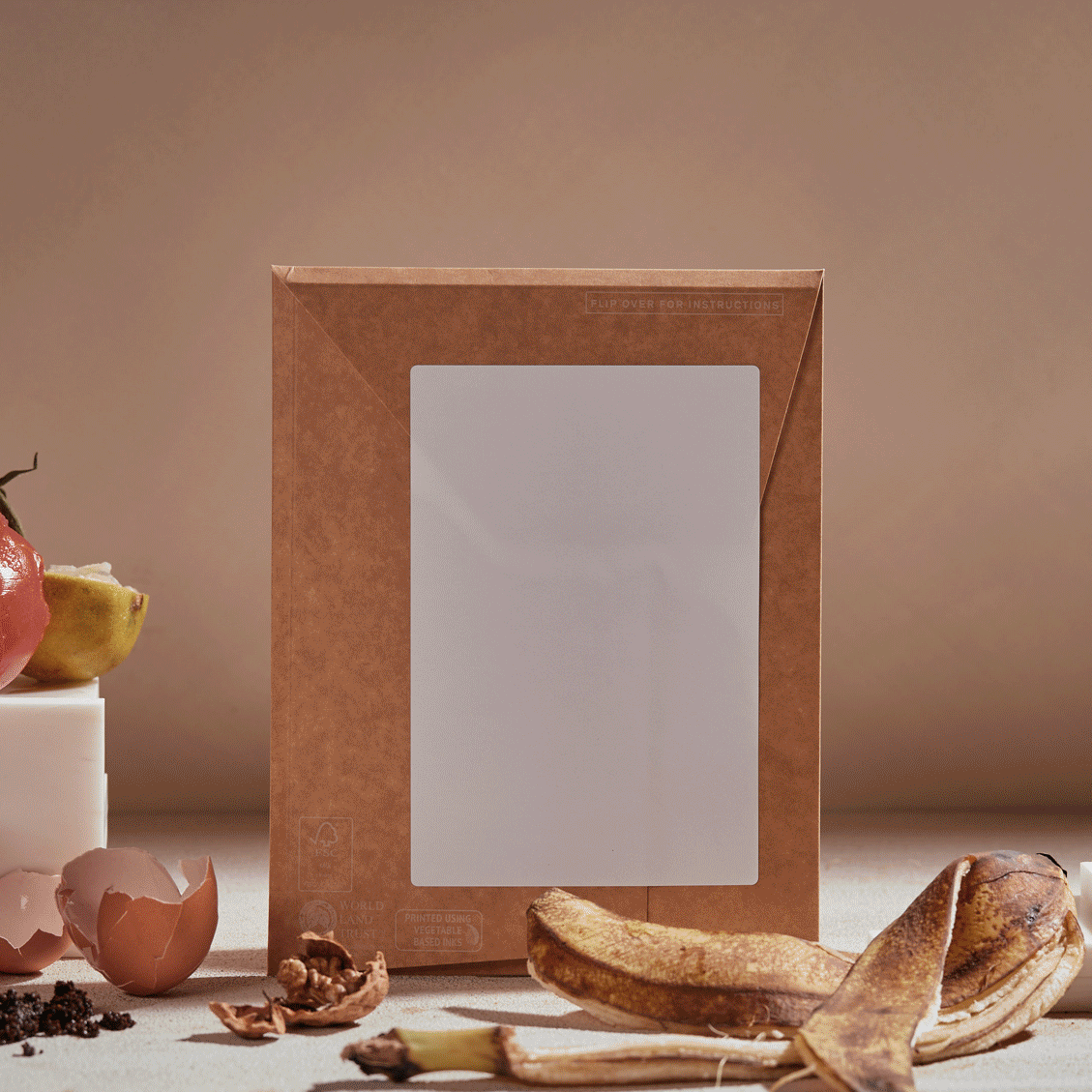Food unites citizens in Norway’s verdant future city
Norway – The interplay between nature and the built environment takes centre stage in the proposal for Powered by Ulsteinvik, a verdant vision for urban living in Scandinavia that draws on local natural resources to grow food and power local buildings.
Designed by architects Kaleidoscope Nordic, this future city would be situated close to the sea, with a focus on creating a pleasurable space for people to work and live. Alongside a smart grid and automated electric buses, Powered by Ulsteinvik will utilise the local land’s natural energy to create circular neighbourhoods, using rainwater for food and flower growing. Community is also central to this future Equilibrium City, with shared kitchens for residents to cook and eat together, as well as ‘generation gardens’ where kindergartens, elderly care and medical facilities can immerse people in green spaces – something that is proven to be health-positive.
In particular, this proposal also emphasises how, in certain regions, green spaces can help people to connect but also reclaim independence and security through activities like food-growing that are also inherently more eco-friendly. In New Urban Farms, we examine the cross-over between food technology and ancient farming techniques in use in global cities.
Strategic opportunity
From shared kitchens to cook-along events, food brands can help people to reconnect with one another and their local food heritage, working with public spaces or institutions to foster community and cohesion
OnRepeat refills tackle beauty’s packaging problem
UK – Refillable products have grown across the beauty and personal care sectors, but the distribution of refills can still result in more packaging and waste than necessary – something OnRepeat wants to tackle with a B2B service that quickly and efficiently delivers refills directly to customers’ doors.
Offering a next-day service, OnRepeat’s beauty refill packaging is postable and eco-conscious in design, made with biodegradable materials including a non-toxic film that dissolves in hot water. It works directly with brands to stock their beauty or soap refills, which it then sends directly on to customers. With a mission to reduce waste in the beauty industry, the company is said to be in conversation with organisations such as the British Beauty Council, The Sustainability Coalition and A Plastic Planet to collectively solve beauty’s plastic problem.
While refillable beauty products and services originated as a premium offer, OnRepeat wants to make its service as broad and eco-venient as possible. Co-founder Micaela Nisbet tells Dezeen: ‘For us to do that, the service needs to be super-easy and cost-effective for both brands and consumers. Because if it isn't, people are not going to come back to it.’
Strategic opportunity
Alongside the eco-benefits found in refill packaging, brands can explore third-party fulfilment services as a way to ensure repeat or subscription custom, allowing them to focus their energy on new customer wins
Netflix invites neurodiverse and Latinx voices into animation
US – The streaming platform is launching an autumn 2021 mentorship programme targeting amateur animators from under-represented backgrounds. The initiative aims to broaden opportunities for young, undiscovered talent while also using animation to prompt empathy.
The four-month-long Netflix Animation Foundations Program has been conceived with a number of intersectional partners. Exceptional Minds is an autism education organisation that offers technical skills in the digital arts, allowing neurodiverse perspectives to enhance the entertainment industries.
Meanwhile, LatinX in Animation unites a talented pool of Latinx innovators in animation, VFX and gaming, providing them with resources to develop their careers. Young creatives will be matched with a mentor from Netflix’s Animation Studio who will help them navigate the industry.
As well as recognising that diverse talent must sit behind the camera to truly commit to an inclusive workplace, Netflix is elevating its storytelling with neurodiverse and Latinx voices. Our Q&A with Wattpad Studios explains why the future of Hollywood will be both democratic and diverse.
Strategic opportunity
To authentically connect with individual viewers, entertainment brands must do away with gatekeepers and bring a variety of perspectives into their writing rooms and creative studios
Stat: London got noisier, not quieter, during lockdown
While cities were deemed quiet sanctuaries during the lockdown periods of 2020, London was louder than ever. A new study by researchers at University College London (UCL) found that noise complaints in London rose by 48% during the Covid-19 lockdown, compared with the same period in spring 2019.
With more people using their new-found free time for housing renovations, complaints about construction showed a significant increase of 36%, along with neighbourhood noise (50%). The report also found that noise complaints had soared in areas with higher unemployment rates, meaning this study could help the government allocate resources more effectively and ultimately achieve a more comfortable urban environment.
Silence is increasingly considered a luxury in our noisy urban epicentres. To find out where brands can step in and create solutions for serenity, read our Silent Homes microtrend.
Strategic opportunity
Many consumers may have fled to the countryside, but brands should focus on creating home solutions that reclaim domestic serenity for citizens who have no choice but to stay in cities
:strip_exif():strip_icc()/filestorage/images/107300/powered-by-ulsteinvik-kaleidoscopenordic-og-cowi-smarthub-illustrasjon-av-kvant-1-lowres.jpeg)
:strip_exif():strip_icc()/filestorage/images/107303/powered-by-ulsteinvik-kaleidoscopenordic-og-cowi-kretslopsbustad-holsekerdalen-02-illustrasjon-av-kvant-1-lowres.jpeg)
:strip_exif():strip_icc()/filestorage/images/107301/powered-by-ulsteinvik-kaleidoscopenordic-og-cowi-veksthus-illustrasjon-av-kvant-1.jpeg)
:strip_exif():strip_icc()/filestorage/images/107306/onrepeatpress-logo-on-wallet.jpg)

:strip_exif():strip_icc()/filestorage/images/107299/240900641-2635460100096503-5962844160314745128-n.png)
:strip_exif():strip_icc()/filestorage/images/107309/screenshot-2021-09-03-at-13-32-59.png)
:strip_exif():strip_icc()/filestorage/images/129577/thefuturelaboratory-tweezers-crafting-necklaces-of-futuristic-062f2548-1d0a-42f3-8f26-337b64f6cb03-1.png)
:strip_exif():strip_icc()/filestorage/images/129480/23aw-pr-sp-fenty-q3-main-talent-2937.png)
:strip_exif():strip_icc()/filestorage/images/129438/small-time9229-copy.jpg)
:strip_exif():strip_icc()/filestorage/images/129487/screenshot-2025-12-08-at-11-31-06.png)
:strip_exif():strip_icc()/filestorage/images/129402/scorpios-bodrum-by-georg-roske-17004-highres.png)
:strip_exif():strip_icc()/filestorage/images/129281/crop.png)
:strip_exif():strip_icc()/filestorage/images/129264/003-nike-after-dark-tour-reimagined-race-medal-1.jpeg)
:strip_exif():strip_icc()/filestorage/images/129367/bridgerton-401-unit-02497r.jpg)
:strip_exif():strip_icc()/filestorage/images/129292/54918170927-2d863b7021-k.jpg)
:strip_exif():strip_icc()/filestorage/images/129224/adobestock-622059454.jpeg)
:strip_exif():strip_icc()/filestorage/images/129569/screenshot-2025-12-11-at-09-36-19.png)
:strip_exif():strip_icc()/filestorage/images/129122/lsn-video-thumbnail-template2.png)
:strip_exif():strip_icc()/filestorage/images/107033/luxury.jpg)
:strip_exif():strip_icc()/filestorage/images/129530/small-mantle-180625-01-v2-copy.jpg)
:strip_exif():strip_icc()/filestorage/images/124894/small-mabel-lockbox-adam-firman-1-copy.jpg)
:strip_exif():strip_icc()/filestorage/images/106541/4-gen-x.jpg)
:strip_exif():strip_icc()/filestorage/images/129510/oloris-2-scent-edit.jpg)
:strip_exif():strip_icc()/filestorage/images/106541/4-gen-x.jpg)
:strip_exif():strip_icc()/filestorage/images/129508/land-o-lakes-clove-shoes.jpg)
:strip_exif():strip_icc()/filestorage/images/129483/screenshot-2025-12-08-at-11-22-48.png)